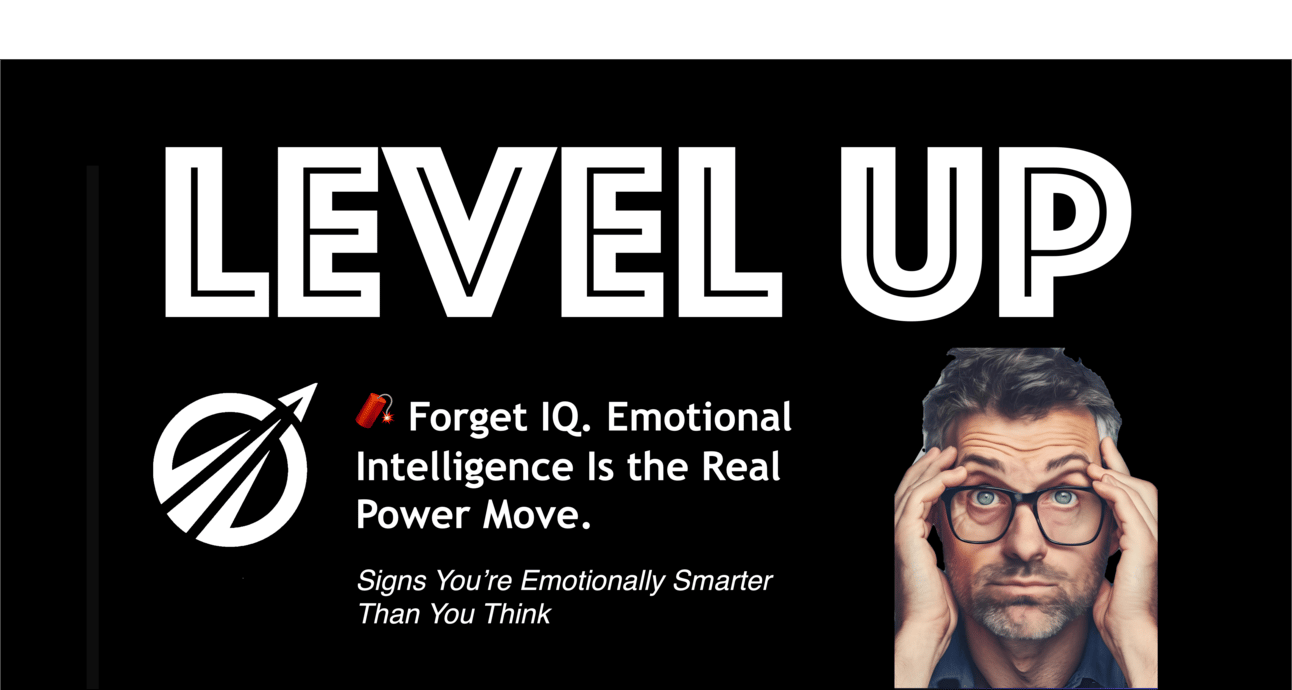Your résumé might open doors.
But it’s your EQ that keeps you in the room—
…and puts you at the head of the table.
In every company, there’s that person:
Not the loudest.
Not the most credentialed.
But somehow… always trusted, always effective, always respected.
That’s not a fluke.
That’s emotional intelligence. And if you recognize these 10 signs, you might be playing a much smarter game than most.
10 Signs You’re Emotionally Smarter Than You Think
1. You Don’t React—You Respond
You don’t let emotions hijack your decision-making.
You pause, assess, and choose your response.
Tip: Next time you feel triggered, count to 10 before you speak.
2. You Read Between the Lines
You notice body language, tone, and unspoken tension.
You hear what’s not being said.
Tip: Pay attention to emotional cues in your next meeting. It’s often where the real story lies.
3. You Own Your Mistakes
You don’t deflect, blame, or hide.
You admit when you’re wrong—and you learn from it.
Tip: Model this in front of your team. It builds credibility fast.
4. You Set Boundaries Without Guilt
You know when to say no.
You prioritize what matters without feeling bad about it.
Tip: Practice saying “That’s not a priority for me right now” instead of over-explaining.
5. You Stay Calm Under Pressure
When others spiral, you stay steady.
You bring clarity when emotions run high.
Tip: Breathe deeply before you speak when stakes are high. Calm is contagious.
6. You Handle Tough Conversations Head-On
You don’t avoid conflict—you navigate it.
You focus on resolution, not drama.
Tip: Use phrases like “Help me understand…” to open the dialogue.
7. You Don’t Take Everything Personally
You separate feedback from identity.
You see criticism as data, not a personal attack.
Tip: Ask, “What part of this can I use to grow?”
8. You Know Your Emotional Triggers
You’ve done the inner work to recognize what sets you off.
You manage it before it manages you.
Tip: Journal your emotional reactions for a week to spot patterns.
9. You Make People Feel Seen and Heard
You listen to understand, not just to reply.
People leave conversations with you feeling valued.
Tip: Mirror back what you heard before adding your point.
10. You Balance Logic and Emotion in Decision-Making
You don’t suppress emotions—you integrate them.
You recognize that gut instinct and data both have a role.
Tip: Ask yourself, “What does the data say? What does my intuition say?”
Final Thought
Emotional intelligence is a skill—not a personality trait.
And like any skill, it can be sharpened.
Start small.
Pick one of these areas to practice this week.
The results might surprise you.

